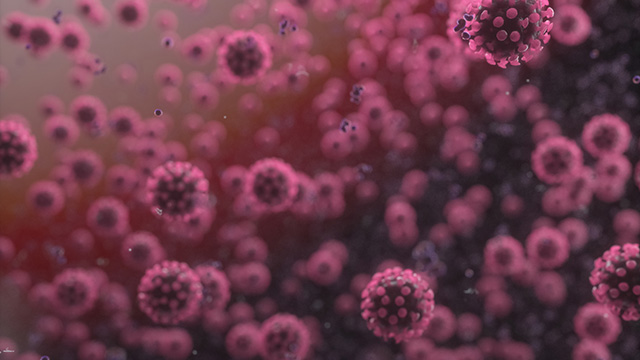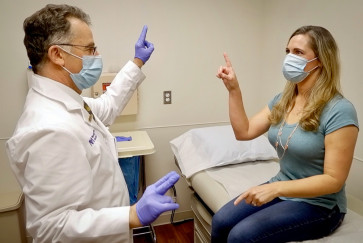Northwestern Medicine has identified the first case in Illinois of the COVID-19 variant called P.1., which was first found earlier this year in travelers from Brazil during routine airport screening in Tokyo, Japan. The variant has subsequently been identified in several other countries.
The case in Chicago was identified by the Pathogen Genomics research team at the Northwestern University Feinberg School of Medicine through sequencing analysis of a COVID-19 specimen. A follow-up investigation by CDPH found that a household contact of this individual had also recently been unwell with COVID-19, but neither this individual nor their household contacts reported travel outside Illinois.
“We identified it through our research program following mutations in the virus over time in the Chicago area,” said Dr. Egon Ozer, assistant professor of medicine in infectious diseases at Northwestern and a Northwestern Medicine physician. The Pathogen Genomics research team performs molecular surveillance and sequencing of residual diagnostic samples from COVID-19 patients at Northwestern Memorial Hospital. Team members involved in this work include Dr. Ozer, Dr. Ramon Lorenzo-Redondo, Dr. Judd F. Hultquist, and Lacy Simons in the Division of Infectious Diseases.
The virus has several mutations in the spike protein including one shared with UK variant (N501Y) and a mutation at the 484 position in the spike protein that may decrease the susceptibility of the virus to immunization through vaccination or prior infection, scientists said.
“This means that if someone was previously infected with COVID-19, the immune system may not as effectively fight off a second infection with this variant,” Ozer said. “There is also some concern that the current vaccines might not be as effective at preventing symptomatic COVID-19 with this variant, though the degree to which they differ is unclear.”
Evidence suggests this variant can spread more easily than other currently circulating strains of COVID-19.
A case of P.1 was first identified in the United States at the end of January in Minnesota and has since been identified in several other states.
The same strategies used to contain the spread of COVID-19 will work against the new variants, Northwestern scientists said. These include: wear a well-fitting mask; practice social distancing; avoid gatherings; don’t travel unnecessarily; wash your hands often. And get vaccinated when it’s your turn.
CDPH, IDPH and the U.S. Centers for Disease Control and Prevention (CDC), in collaboration with various public health agencies, are closely monitoring this strain and other COVID-19 variants.


